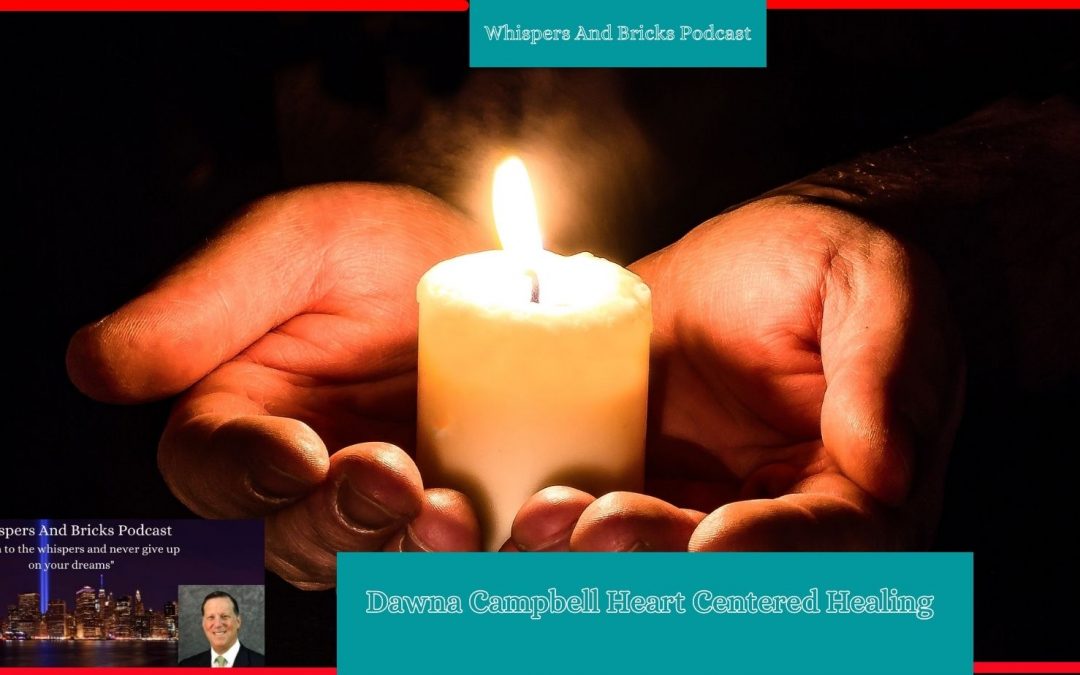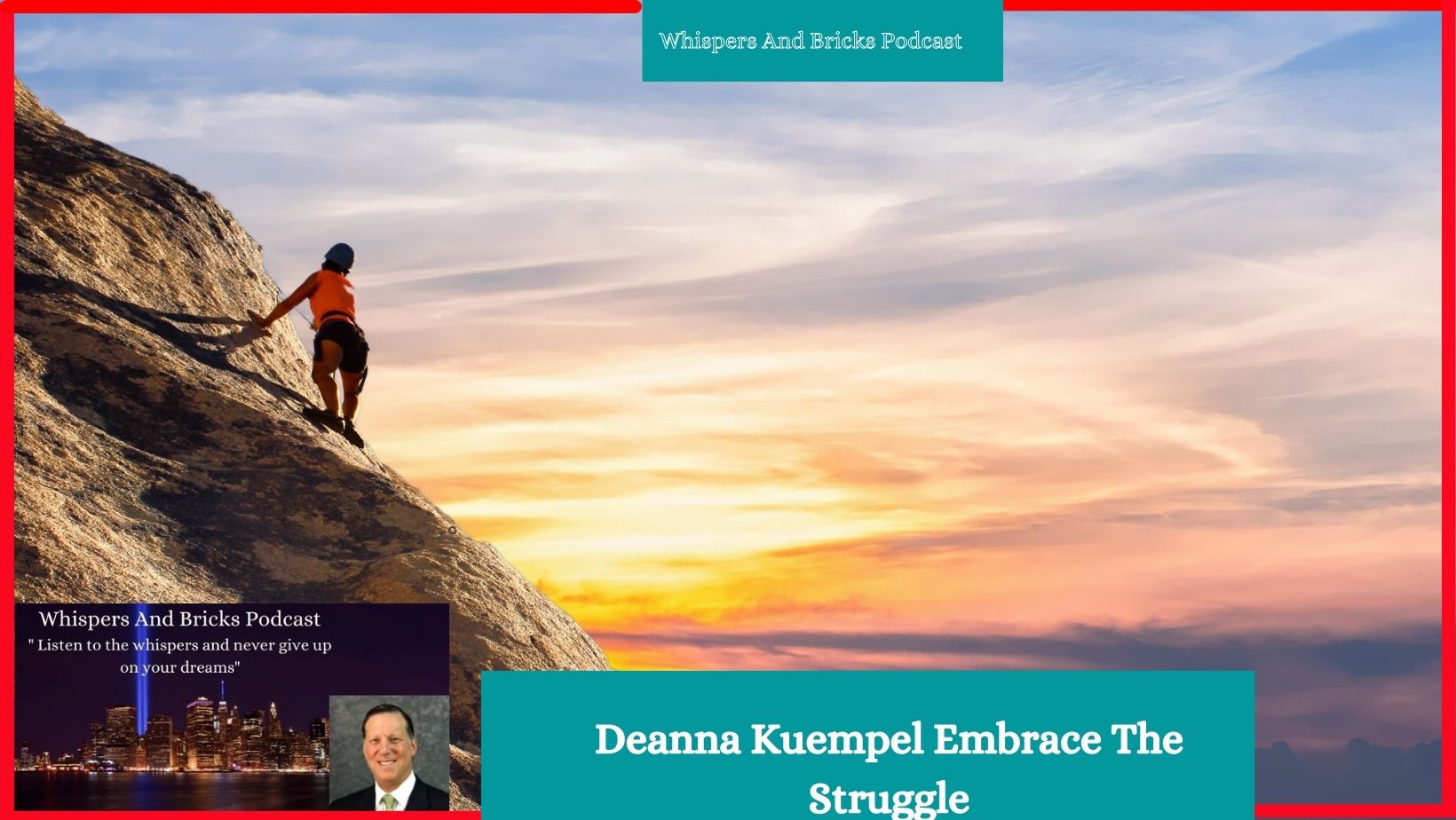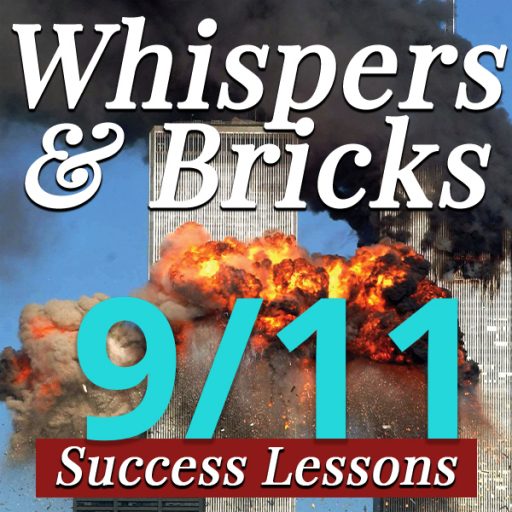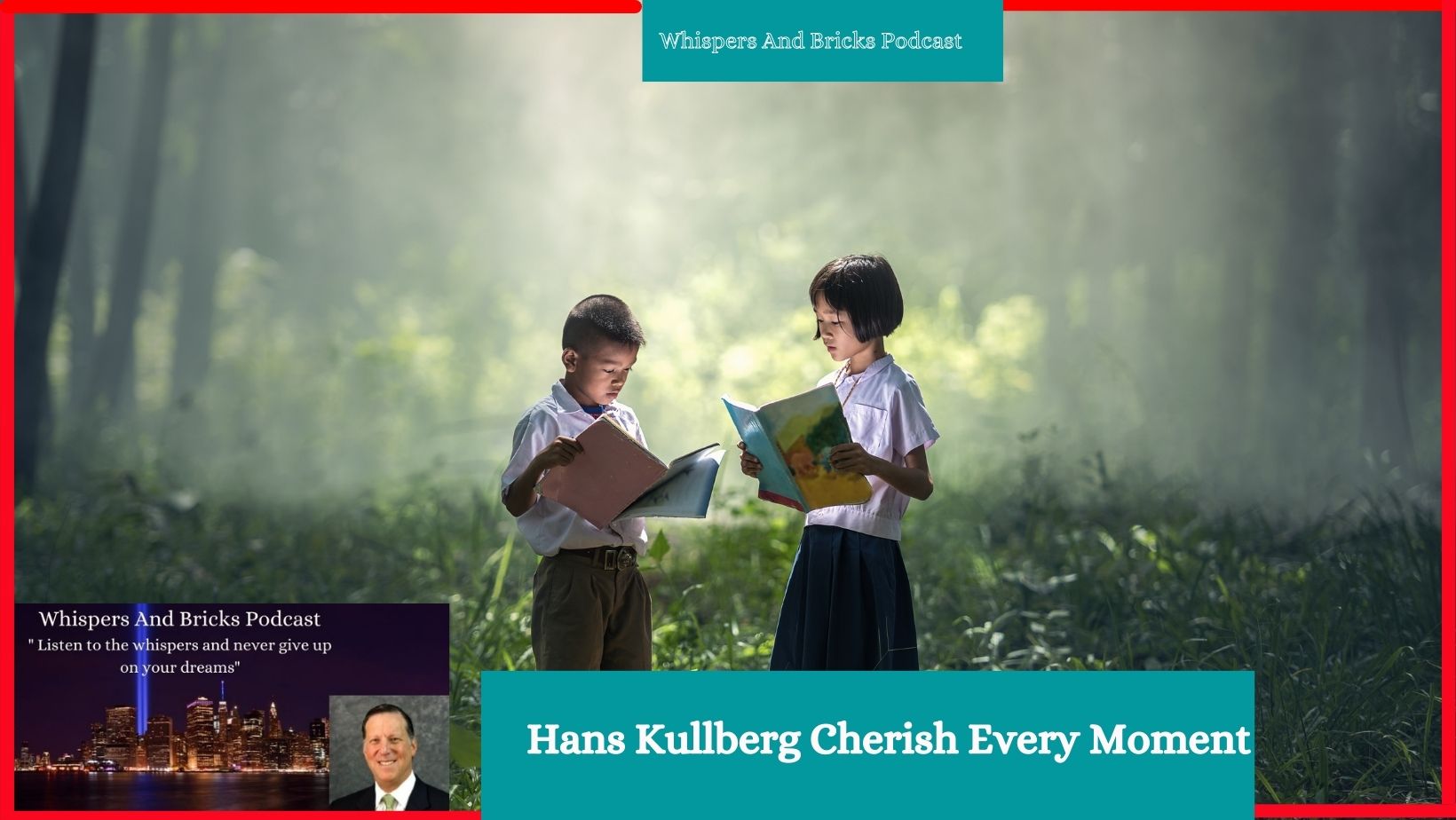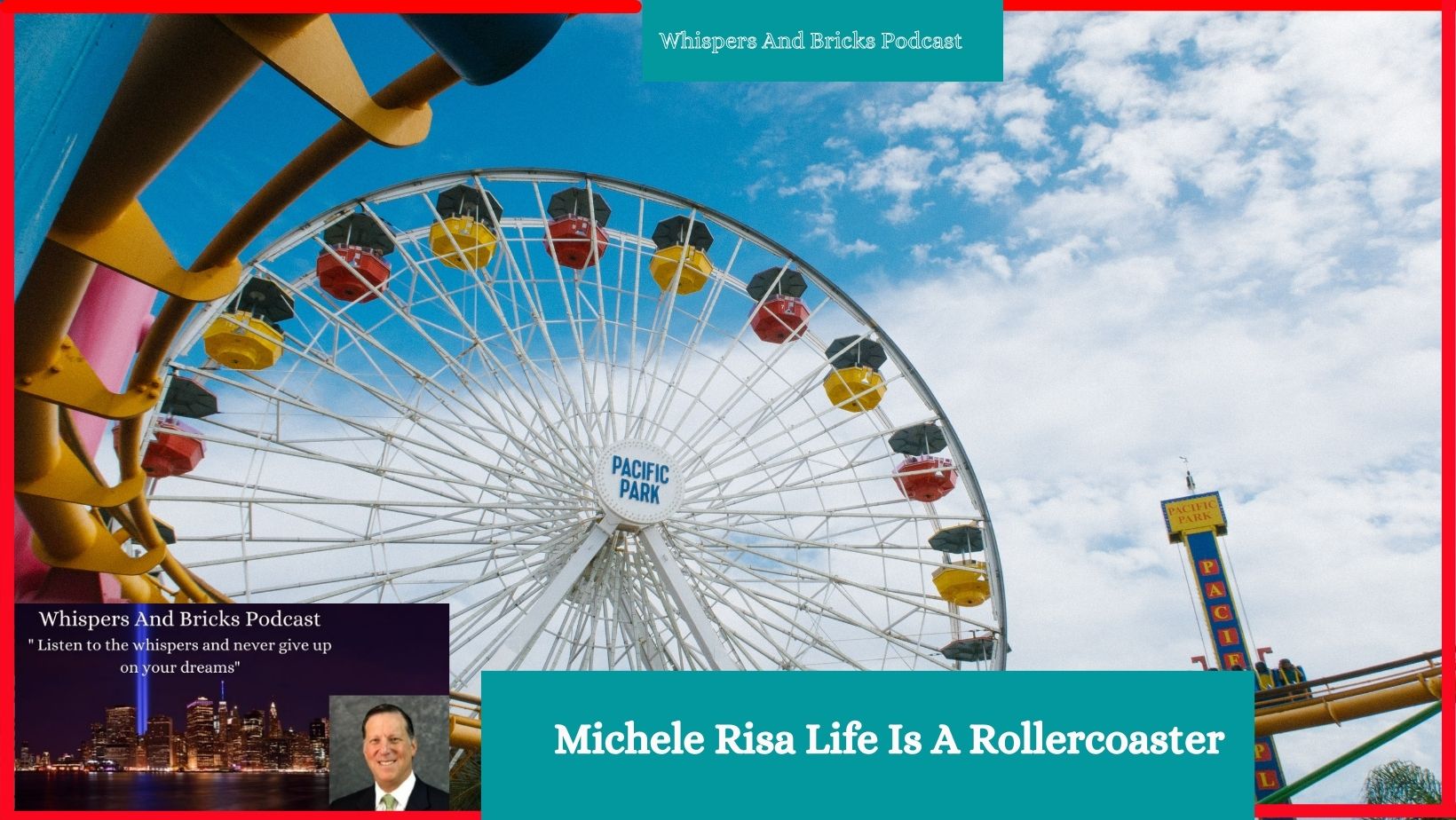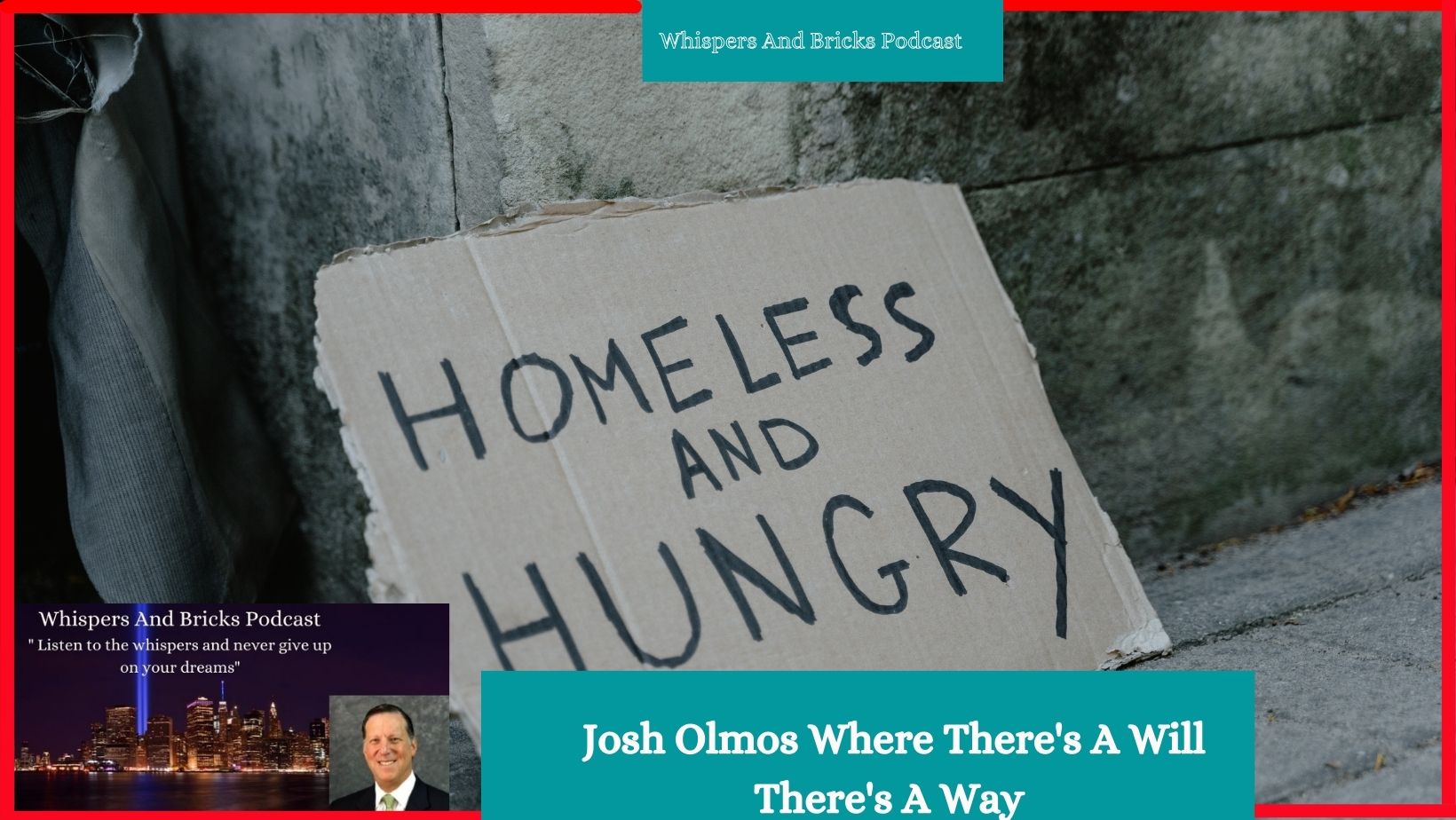Lily Walford Find Love That Lasts
Summary:
Lily Walford was a successful accountant for fortune 500 companies but found herself in the wrong relationships. She went from dating a narcissistic psychopath to someone who was emotionally unavailable. Lily took this brick, listened to the whispers, and tried to figure out what was happening. First, she wanted to find out why she attracted the wrong men. She learned a lot has to do with your mindset and also being able to profile behavior to know when you’re dealing with a dangerous personality. Then, she used this knowledge and experience to help people find lasting, loving relationships.
Show notes:
https://www.lovewithintelligence.com/
info@lovewithintelligence.com
https://www.facebook.com/LoveWithIntelligence
Love with Intelligence Youtube Channel
Episode Transcription
Intro Plays
Ari: Welcome to Whisper and Bricks. My name is Ari Schonbrun. I’m your host. My guest today is Lily Walford, Willie Walford, Lily Walford, is an accountant turned international dating and relationship coach, after going through a couple of relationships with psychopathic narcissists, as she says, as she tried to figure out what attracted her to those types of people that led her on this mission to help 1000s of people to experience real, genuine and honest love that lasts. She worked with singles and couples to improve their love lives, so they enjoy lasting undeniable love. Lily has worked with industry leaders within behavioral psychology and body language, which has supported her to create powerful results with our clients, such as people meeting their partner within 21 days through Lily’s exclusive compatibility matrix matrix approach, and she’s supported couples to reclaim the passion and chemistry within their current relationships. Her work has also been mentioned in national and international press, and she regularly contributes to various publications, such as cosmopolitan and Marie Claire, please help me welcome Lily Walford, Lily, how are you today?
Lily: Great. Thank you. Thank you so much for having me on today. I’m super excited to dive into all these crazy topics.
Ari: That’s great. I’m excited to have you on the show. You know, we’ve had some conversations earlier on you and I. And I was just fascinated. And I think my audience is going to be fast. And I think they I think that really, really going to enjoy this show. So as you know, the name of this podcast is whispers and bricks, the whispers of those voices telling you what the right thing to do is and they represent the good in life. And the bricks represent the bad things that we go through in life. And let’s be real, everybody gets hit with a brick at some point in time, either life or another. Some more bricks, some less bricks, some big brick, some little bricks, but nobody goes through life on a high from beginning to end. It just doesn’t happen. So for you, life seemed pretty good. You’re an accountant, you work for a fortune 500 company, right things to go tell us a little bit about that part of your life. To start off, tell us what you know, how you got there, what you were doing?
Lily: Yeah, so originally, when I came out of secondary school, I went straight into the family business, we had these really cute little, you know, retail shops, one was an old fashioned sweet shop, another one was, okay, a jewelry shop. And it really got me fascinated about business. I thought, Okay, I want to go into accountancy. And my slowly sort of built up and went into went into more corporate and worked ended up in Fortune 500 companies. And before I entered my, you know, created my business now, I was, you know, working for Fortune 500 company, I was in a relationship that I thought was absolutely fantastic. You know, lived in a beautiful four bedroom home in a beautiful area of the city to brand new Mercedes on the drive. And I think I was only about 2024 25 at the time. So I thought, okay, brilliant, life’s all mapped out. And all of a sudden, you know, we ended that relationship. We went from going on to talking about holidays, and where we’re going to go next to a couple of hours later, it was like got this text saying we need to talk. And I was like, great. Okay, so within a weekend, I suddenly you know, lost, you know, my relationship had to move house kept Mercedes that’s always good. And had to sort of almost rebuild my life and it got me really questioning, okay, what’s important to me? You know, why am I ending up in the wrong kind of relationships and it really got me wondering, okay, what is a healthy relationship because even prior to that ended up in like you’re saying, the psychopathic narcissistic relationship, and even in that relationship, I stopped for five years after that relationship. Oh, my God. So vain.
So basically things were going well until you started to date a guy who turned out to be as you put it, a psychopathic narcissist. All right, I guess that’s when the brick started to hit. As you kind of mentioned, you know, you mentioned the losing the house losing whatever it was, tell us what was going on at that point. Um, you know, yeah. He said you have to talk. And and what happened?
Yeah, so that relationship wasn’t with the psychopathic narcissist, or psychopathic narcissist was a little bit before that one. But it was the relation that relationship again, it just wasn’t it wasn’t right wasn’t. So basically we’re both very self unaware, both emotionally unavailable. Because anyone who goes through like a narcissistic relationship or relationship you’ve been controlled, you tend to struggle to trust yourself and struggle to trust other people. So you tend to hold people at arm’s length. So basically, we’re to damage people that really couldn’t, you know, we couldn’t keep that relationship going anymore. And when that relationship ended, it kind of got me thinking, Okay, what’s going on within me? Why am I attracting these kinds of relationships, whether they’re narcissistic, whether they’re emotionally unavailable, whether they’re just not right for me, and within that years, when that relationship ended within 12 months, I became an NLP practitioner and Master Practitioner, a life coach and hypnotherapist I did a bit of public speaking. And I created a business whilst working full time in a whole new job in a different city. You know, a lot of changed in that time. But it did make me realize that self development, you know, self confidence, self worth is great, but it’s still not quite enough when it comes to relationships.
Ari: So, so let me get this straight. You know, after after, it seems like you’ve got hit with a couple of bricks, you know, depending upon how many guys we talk about. But at this point F, you know, right before you changed your whole life, I think as you said, as we discussed, you actually hit rock bottom. All right, now, let me ask you this, when you hit that rock bottom, did you say to yourself, was there any point in time you said to yourself, you know what, I quit. I’ve given up myself, I’ve given up on my dreams, you know, I’m not doing this anymore. I’m gonna curl up into a little ball and die. Okay. And if that was the case, how did you turn it around?
Lily: It was quite interesting, actually. So I think during that time, so when that relationship broke down, you know, few, a few days before my dog had just recovered from an from an operation. So I was like, sleeping on the sofa for two weeks waiting for my dog to recover. You know, getting told off at work for having it having time off around. So I was like, emotionally exhausted, and then the relationship ended. So and then realizing, okay, I’ve got to somehow, you know, pack up the house, move and arrange all these different things. And it was almost like, running off adrenaline. I think that’s the only way I can kind of put it it was very much like, just need them to get these things done. There was a moment when I was packing up the kitchen, I was alone in the house. And it just kind of really hit me It suddenly really made me realize wow, I’m leaving this life that I genuinely thought I loved and it’s like okay, I’m kind of taking parts of me and parts of these memories and parts of these lives and and trying to organize it into my new life. And yeah, I completely broke down I never known pain like it was like just literally felt it ripping through me thinking okay, I’m just being completely removed from this life. haven’t got a clue what’s going to happen next haven’t got a clue how I’m going to you know, move forward. But there was something in me that just snapped and it said right okay, I thought this life was good. I thought that this was right for me. It’s obviously not but I’m committing to myself to make sure whatever I go into next is going to be better. And it was Yeah, it kind of it kind of allowed me then to create that driving force of not settling.
Ari: Okay, so you made you basically made a decision. Alright, stuck with your decision to get out of the climb out of the the bottom of the barrel basically. Were your parents involved at all? Did you did you have conversations with them? Were they helpful? You know what was going on with that?
Lily: Yeah, thank goodness. They were super super helpful. So they were about about 6060 miles away so it wasn’t too bad but an hour and a half away drive. And I had my sister running up picking up the dog going back and helping me pick up you know, items of furniture, clothes, you know line by line. Sorry, get my words out a lot. I’m going to make a really easy transition sort of moving back close to family because I moved back in with my parents for a term whilst also looking for a job. And whilst also driving, you know, was it meant to just over two hour round trip going back to my job, which was in that city? Because I had a two month notice periods as well during that time. So it was, it was crazy.
Ari: Okay, so you pick yourself up by your bootstraps, as they say, and you decided that you were going to start a new business?
My right. Almost.
Okay, so tell me talk to me.
Lily: Yeah, so um, you know, whilst I was going through all the craziness, this is when I actually started to realize I actually can’t do all this on my own. And that’s when I’ve actually made the decision that I’d actually reached out to a life coach. Because I always thought that, you know, being able to reach out to someone like a life coach never done it before. It scared me to death because I thought I need for the week, people, I had this big belief system around that. And I was amazed whilst going through all this transformation whilst going through this crazy journey. You know, having the ability to understand myself and actually learning actually, to have that kindness towards myself and realizing how amazing this was. I actually wanted to go into it. So this is when I actually started to go, Okay, well, you know, what’s life coaching? How do I get into it? And it was really strange, because all of a sudden, my mom’s best friend, I found out her partner was in something called NLP. And, you know, they’ve been together for ages. I don’t know why I hadn’t met him, you know, for I think it was they were together over sort of five or six years by that point. And for whatever reason, hadn’t met him until the moment I decided to sort of go into NLP. And we had this conversation about what it was and how it works with the subconscious mind. And within 10 minutes, as well, you know, during that conversation, we actually had a chat about addictions and chocolate, really, really random. And chocolate was one of these things I absolutely loved. And within 10 minutes, I couldn’t touch it. And I couldn’t touch chocolate for about 18 months after that point, which is just crazy. And it made me realize actually how powerful NLP is, and how powerful the mind is when it comes to actually creating these changes. So when that happened, that was it. I was told I needed to understand everything about NLP, I wanted to understand everything about the mind. And I also wanted to help people overcome, you know, various different issues within their lives, which then later on developed into, you know, understanding relationships, improving relationships, and going down that line of business. Well,
Ari: I’m a novice. Okay. And I’m a I, you know, I don’t know that can you? Can you start by telling me, what is NLP? What does that stand for?
Lily: Yeah, so it’s neuro linguistic programming.
Ari: And what is that? What is that,
Lily: you know, if you go online, you will see so many different interpretations of it. But mine would be it’s the way that we communicate on a subconscious basis. Because a lot of people tend to focus on trying to just force them mind to think a certain way. But when you actually start working with the subconscious, you can end up having lasting changes. So it’s a little bit like the subconscious, the part of the mind that allows us to automatically drive and not realize we’ve taken a turning and we end up at a final destination. versus, you know, the conscious mind were like, Okay, we’re gonna go on a diet start Monday, and all we can think about is the chocolate cake.
Ari: I hear that right. Story of my life. Right. So but you had some help. As you know, as we discussed before the show you met or gotten got in touch with a gentleman that was going to work with you. Chase, I think was his name, correct?
Lily: Yeah. So that was 12 months into my journey. So when I went through all the NLP and all those different things, I thought it was fantastic but realized it wasn’t quite enough when it came to, you know, relationships and really understanding who’s compatible, who’s safe and all those different things. And at that point, I was dating, and I ended up meeting another stalker Long story short, from just my profile picture, and just from a couple of messages, he had managed to find out where I lived, and send a big bunch of flowers. And you know, alarm bells were ringing, my mum bless her who’s lovely she was she was going okay when you’re going to meet the guy, because that tends to be the first thing that we think to do. As soon as we receive something we want to be able to give back in some sort of way. That’s a whole other whole other realm direction, that conversation of how influence works. So I knew that this person was a stalker, I knew it was a dangerous personality type, and this person knew where I lived. And that’s when I reached out to one of my friends who I knew that was working with Chase. And you know, sent the messages sent the pitch the profile over, and within a few minutes, Chase actually allowed me to understand the ways to actually disengage with this dangerous personality type without being rude without being confrontational. And all of a sudden, this person didn’t want to assume anymore. And I knew from that moment, I wanted to, to understand more about behavior and behavioral profiling, and how that I can actually use that to allow people to stay safe. So chase a little bit of background on him. He is a world leader in behavioral profiling, he has trained over two and a half 1000 military operatives, to a Jason Bourne James Bond kind of level, with $30 million worth of government backed research. So he knows his stuff, you know, you can profile peoples in six minutes or less and read body language better than a polygraph machine. So it’s just insane. And when I, when I’ve sort of started to understand more about chases work, that was it, I went on a course I learned more about him, and we partnered up in business to be able to give this to, you know, to start off with singles who wants to go ahead and meet the one and uncute so fast dating because was it two people in you know, two women in the UK every week, get killed by their partners or ex partners? Bear in mind, the UK is quite small. And you know, one in three women and one in four men, you know, in the US go through physically abusive relationships. And it shows that it’s a huge problem. Yeah,
sounds like it sounds like you, wow.
So through this, we’re able to profile people and say, okay, this person is safe to be with, this person is actually compatible with you. And all of my clients I’ve worked with using this information of all entered into long term relationships, some as little sorry, some have entered those relationships in as little as 21 days as well. That is
absolutely amazing. It’s just, it’s crazy. It’s really absolutely amazing. So let me ask you this, and I think I know the answer, but I’ll ask anyway, who is the one person you would point to, that you would say had the most influence in your life?
Believe it or not, I think I might surprise you. But it would be my partner, when we actually meant we actually entered a relationship shortly after I did want to chase his courses. And over that, over the span of our relationship, and so far, we have learned so much about each other what creates a healthy relationship. He’s also a behavioral profiler, as well. And, you know, together you know, we’ve learned so much that there’s that’s helped us to help so many other couples and singles, worldwide, so we, I would say him.
Wow. Okay, so now, what are you doing now? I think you’ve got you mentioned to me that you’ve got some exciting news, you want to tell you want to share it with us, please.
Yeah, so we’ve just launched our radio station, which is just been absolutely incredible. So we’re now reaching, I believe it’s 1.5 million listeners every week.
Wow. That is great. And I assume that along this this program is all about relationships and making the right choices etc Am I correct?
is all about you know, love relationships, dating how to improve relationships. And we’re also launching a book this year as well. So we’re looking to launch in June
oh, what kind of book What’s the book about
so this is predominantly for professionals who are looking at to meet the right partner.
Ari: Wow, that’s awesome. You know, I It’s I’m so I’m so glad that you agreed to come on the show I think was very, very important. Let me ask you this. If people want to get in touch with you, what will be the best way for them to do that you have a website. I know you haven’t, you can have a radio show. But you have a website, you have an email address. What What have you got? How can people get a hold of you?
Yeah, of course. So, our website is love with intelligence.com. And you can also contact us through email and that’s info at love with intelligence.com.
Wow, well, it looks like you’re really really doing a lot. It looks like you’re you’re you’re helping a lot of people. I’m sure you’ve helped. I’m sure you you have helped and will be helping a lot of people in my audience. It’s absolutely amazing. Right. And, and, and one so young, I mean, you’re you’re what? How old are you?
Lily: I’m 2929
Ari: Oh my god, you can be my daughter. Wow. Okay, great. Well, Lily, thanks so much for sharing your story with my audience. Good luck going forward. Keep doing what
